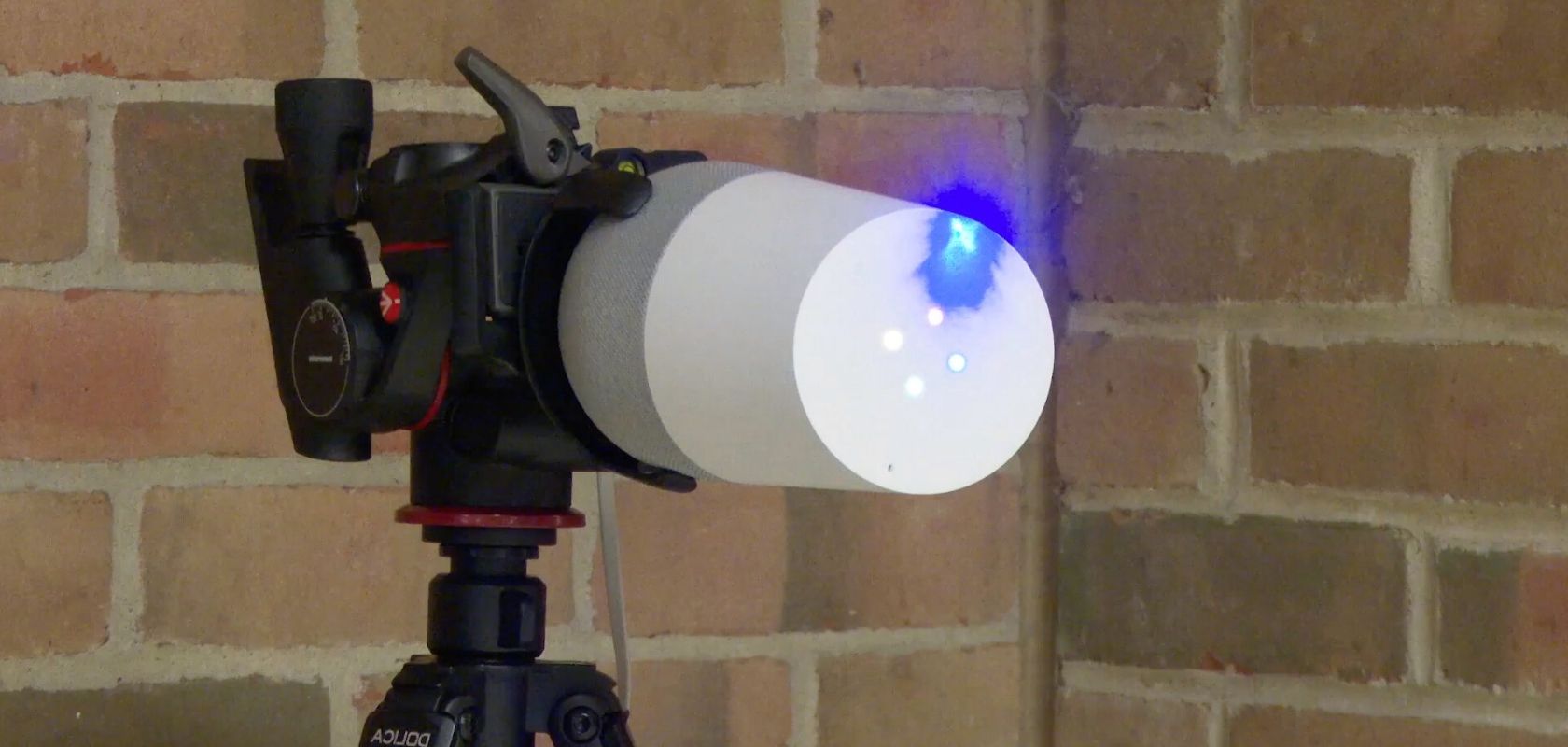Do you remember the common cliché used by games, movies, and cartoons? The one with a shady man in cape hiding a ring with lock picks and using it to open locks? Well, the new iteration of a burglar trying to break into your house may be a little bit more technological.
The recent research by a cybersecurity researcher Takeshi Sugawara showed that a laser-generating high-pitched sounds may be able to communicate with smart devices.
The laser itself does not produce any sound but its frequency can make smart devices convert the light frequency into sound waves meaning that you can give voice commands to smart devices by pointing a laser beam at them. Amazon Echo, Google Home, Facebook Portal, and many other devices may be in danger.
The researchers used a sophisticated set of equipment to learn how to use lasers to give voice commands. While it took some effort, the results were quite disturbing.
The researchers managed to make Google Home react to its command from over 250 feet away. Switching lights, channels on your TV or otherwise messing with homeowners may sound like an innocent prank to some. However, these devices also control doors, security systems, and important engineering systems.
Researchers warn that hackers may use infrared light that cannot be detected with naked eyes. The most effective protection against such hackers is hiding smart devices and their microphones away from the possible line of sight.













